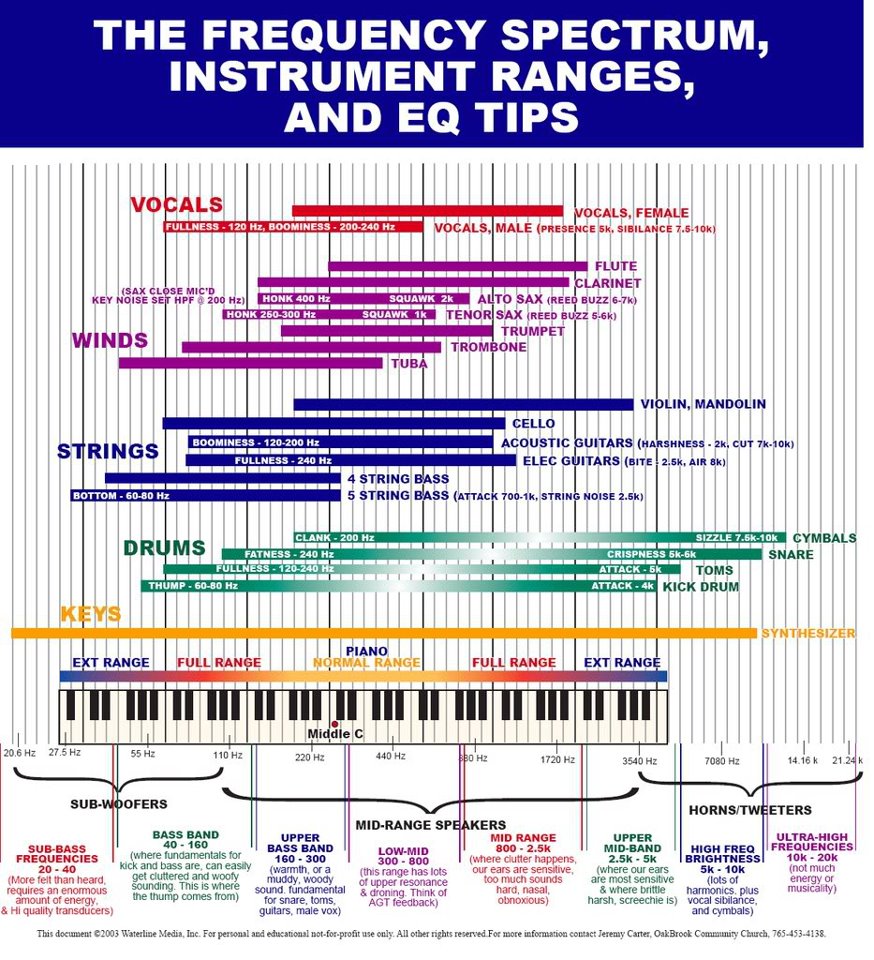R
RFR
Well-known member
THIS is THE proper ANSWER to any and ALL of your questions.It's about skill...knowing how to record...how to mix...how to master.
THIS is THE proper ANSWER to any and ALL of your questions.It's about skill...knowing how to record...how to mix...how to master.
And I'm not sure where miroslav thought in the slightest he had displayed any credibility to me to think I could even be including him in the group of people I referred to as making a pact.

The fact that no-one can answer my original question is not a failure on my part...
Mine sounds...fake and like 12 different songs being played together.

Explain to me then. Sound design, song structure, music theory, recording techniques, mixing, and mastering. I'm just so very confused.
The fact that no-one can answer my original question is not a failure on my part, for I asked for personal preference. Personal preference for when you are making your own music, unless of course every time you just start off oblivious, it's quite rather a simple question...unless I'm talking to people who purely record music. In which case you more than likely couldn't answer my question because you're not even completely sure yourself. I'm a digital player, you all seem to be analog. By the way, help me understand. To create a song that sounds professionally done you just need to equalize it a little bit, pick a better room, and viola. You're a sound engineer. Great advice guys. Really turning the page on what we know about sound.


I really like the idea of having software to basically automix, I already use presets so that's not much different. Computers could be great at the engineering half of the mix I think. It could get all the pieces sitting well enough together, clean up the signals, eliminate some nasty frequencies and hums, all that grunt work. Then the human takes over and does the artistic half.

Just curious about this type of thinking.




But if it could at least figure out how to keep the information you'll actually hear and reduce the information you don't want, like freqs obscuring the vocal, mud, etc, I think that'd be awesome.
I'd just like the daw as transparent as possible and let me throw my effects on, make adjustments, sweeten things up, that would be my ideal setup.

All i know, is that I see a hell of a lot of foolishness and laziness going on.
You ever see those cheap car and home stereos? The ones that have a 'rock preset', 'jazz preset' etc?
That's where it's going.
If they can get other computers to listen then humans will have effectively been eliminated from one of the most human things you can do - make music.
Well...with all these new apps that analyze your audio and then apply mastering algorithms based on some preconceived "norms" that some programmer worked out mathematically... I guess that's about as close as a computer can get to listening.
Here's the problem with all that stuff and with algorithmic presets that judge your music by some formula about how certain frequencies should blend and at what levels, etc...there is NO subjective/emotional feeling to base any decisions on.
Music is NOT just about the numerical quantities...that if you x-amount of frequency A, then you should have y-amount of frequency B...that's not what music or mixing or mastering is about.
It's about the feeling...the mood...the intent...and no amount of analysis by a computer is EVER going to be able to "hear" the music from those perspectives...rather it's just a numbers game...a math equation, executed by the computer.
The numbers may say that -5 dB at 250 Hz is what the math indicates...but your ears, your emotions, your intent may tell you to BOOST by 5dB because that's the mood you want to create. A computer or a preset will never do that.
Anyway...the real concern is that over time presets and computer algorithms may get music to a "listenable" point...but everything will be the same...homogenized.
I want to lay down some tracks, do some tweaks (if I have to!) and have a decent mix.
